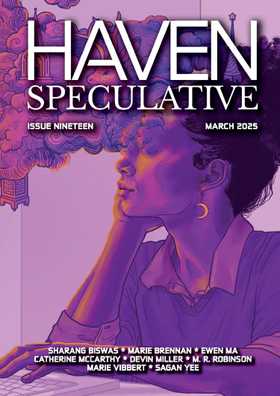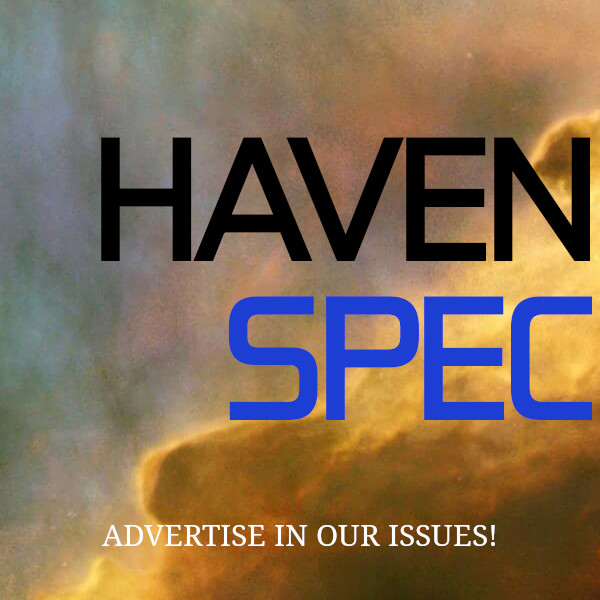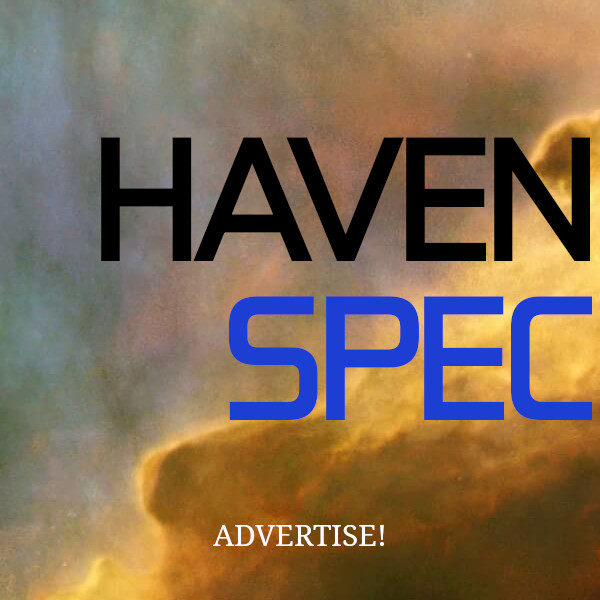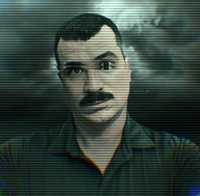NON-FICTION
Interview with Lindz McLeod
by TJ Price in Issue Nineteen, March 2025
TJ Price: Hi, Lindz! Thanks for agreeing to engage with these questions! I’m fascinated by your work, and have been ever since I first read a short story submission of yours (“The Sunbathers”) for Cosmic Horror Monthly, in which it was inevitably published. (Issue #42, Cosmic Horror Monthly) I was immediately struck by the polished, assured prose and the vibrant, daring voice behind it. The descriptive language was a delight, a host of metaphor and simile that roared with abandon across the entire sensory spectrum. Following my read of this—even before it was accepted for publication!—I immediately sought out and bought your first collection of short fiction, Turducken.
I am continually impressed by your willingness and curiosity to examine and employ different avenues of narrative. In Turducken, you experiment with language and form quite a bit. Can you tell us about what it is that excites you when it comes to experimental approaches to fiction—either in your own, or reading it in others… or even both, if you feel so inclined?
Lindz McLeod: I love the idea of finding new ways to tell stories; I think at heart I’m a playful, mildly unserious person, and that definitely comes across in Turducken; there’s a triptych of flashes in there about a threesome (two human, one not) where the non-human person can only speak with certain limitations. At first, she can only speak in Philip Pullman plotlines, and later it’s dialogue from Frasier… Deeply unserious, but deeply fun to play with. There’s no idea too ridiculous to try at least once—that’s my motto.
Ironically, while being unserious, I often discover I’m actually telling an emotional story after all. When I first began writing “Cipher” (a story told via crossword clues, which does actually fit into a real crossword), I just wanted to see if it could work, but it ended up being a story about yearning and imperfection and figuring out how to be true to yourself.
TJ: Followup question! Can you recall a time in which you read something that expanded your concept of the capabilities of fiction? What was that thing?
LM: Carmen Maria Machado’s Her Body and Other Parties really kicked it off; I admired the way she played with form, structure, and broke the 4th wall by not simply addressing the reader directly but ordering them to complete certain actions. After that, I started reading more experimental fiction in general. As part of my PhD research, I’m looking at ways in which authors can ‘disrupt’ fiction—how we can play with text, what we can remove or change and still maintain an intimate connection with the reader. I’ve read works so far which play with format: Jennifer Egan’s A Visit From the Goon Squad where one entire chapter is in Powerpoint format (could anyone but Egan pull that off?), George Saunders’ Lincoln In The Bardo, Mark Dunn’s Ella Minnow Pea, with dozens still on my list to read. Life is too short to read all the books, isn’t it? Such a shame.
TJ: You currently live in Edinburgh—which I had the pleasure of visiting myself recently, and which I found absolutely fascinating, absolutely marinated in a very old brew of history. Do you think the city (and its environs!) influences what and how you write at all? If so, how?
LM: Oh absolutely! It feels like every single street in Edinburgh has some weird historical fact attached to it, and because Scottish people have quite dark senses of humour, some of them can be quite grim. For instance, there’s a longstanding pub called The Last Drop in the Grassmarket, about forty feet from where one of the gallows sites used to be. The name of the pub can be read as a comment on the act itself, but it was also the place where the condemned were given a final drink before being hanged (a last ‘drop’ of beer).
Although I don’t often write stories which take place in Edinburgh itself—because so many writers do, particularly crime writers—I do feel that the overall atmosphere has imbued a lot of my writing with a kind of dark and gothic feel. There’s often something lurking underneath the text, waiting to burst out when my characters least expect it.
TJ: Followup question! If you could live anywhere in the world, where would you choose, and why?
LM: Probably New York, where I first met my wonderful fiancée; I love the sheer scope of the city, and even on my first trip it felt like a familiar place to me. There’s always so much to see and do. That being said, I’ve long harboured a desire to live in nature; a little log cabin somewhere in the woods would suit me perfectly for the months during which I’m writing intensively. If money was no issue, I’d probably spend six months a year in a city and six months in the middle of nowhere.
TJ: Much of your work defies genre, and yet a lot of it also embraces aspects and elements of various genres wholeheartedly. Can you tell us a little bit about how the idea of genre intersects with your work?
LM: In some ways I love the categorization of genre, because it lets me cross over and mash them up, and in some ways I find it hard to manage; not all of my work is so easy to label. And at the same time, I delight in subverting tropes—Sunbathers, which came out in September, is about an entirely different kind of vampire breed, powered by the sun. I was tired of seeing the stereotypical vampire shrouded in darkness, and I had this very clear mental image of a bronzed, eightpacked vampire sleeping in a tanning bed instead of a coffin. Instead of the broody creature of the night, they’re WASPy, Jersey Shore influencer types. To me, that’s even more frightening, but it was also deeply fun and tongue-in-cheek to play with those familiar tropes and see what could be done to make them feel fresh and new and still horrifying to the reader.
TJ: How we choose to define ourselves vis-a-vis not only our actions, but also what we love (and what we hate, to a degree)—is a big part of your recently-published novella, Sunbathers. In it, to my thinking, there is a theme of how necessary authenticity is despite pressure (both internal and external!) to seek perfection. Can you talk about how identity and authenticity inform the life of characters in your work?
LM: My characters are so often struggling with doing what they want versus doing the right thing, and rarely do the twain meet! Sunbathers is an extreme example of my usual approach to writing, which is usually ‘a character has plucked at my sleeve and demanded to be noticed/followed’. I knew from the beginning that Soph was not inherently a very nice person, which is something I find fascinating to both write and read, but I wanted to encourage all her worst aspects to see what might happen. To that effect, every time she had to make a decision, I allowed her to make the most selfish, awful choice possible—while still trying to make sure that the reader could follow her reasoning.
Often, people aren’t evil or malicious because they set out to be; they’re simply selfish or afraid or angry, and those emotions drive them to make particular choices. Under extreme pressure, under duress, under fear for our lives, I think most people in Soph’s position would also be quite selfish. There’s something honest about her, at least; if we dare to hold a mirror up to humanity’s worst faces, then I think we owe it to ourselves to meet our own gazes. How can we be the best versions of ourselves if we don’t know the deepest depths we’d sink to? How can we improve our flaws if we don’t even acknowledge them to begin with? And even if we could fix all our problems in a heartbeat, with a single act—should we? Doesn’t that mean we’ve skipped over the genuine hard work of growth and simply papered over the cracks in our souls?
You can tell I’m marrying a psychiatrist, can’t you?
TJ: What is your favorite kind of wind? Does it have a name? If not, please name it for us.
LM: It probably says a lot about me that I went down a Google rabbit hole about types of wind before I was prepared to commit to answering this question. I think a ‘wuther’ (made famous by Emily Brontë’s classic novel, Wuthering Heights) is my favourite—as long as I’m indoors. There’s something wonderful about being cosy inside while wind wuthers at your windows.
TJ: Regardless of one’s political leanings or beliefs, it is quite clear we are currently living in a time of turbulence when it comes to our climate—some scientists even believe we have come to the end of the Holocene. Your fiction has touched on the delicate (and symbiotic!) balance of humanity and the environment repeatedly— never moreso than in Sunbathers—and from what I’ve read, it seems that your forthcoming novella We, the Drowning will also investigate the relationship we have with the Earth. Do your fears (and hopes) for the future of our planet influence what you choose to explore in fiction?
LM: Absolutely. The older I get, the more aware of mortality I am—in both personal terms and planetary terms. In the post-apocalyptic landscape of We, The Drowning, young Cole decides to try to bridge the gap between his tribe, the Parched, and the opposing tribe, the Flooded, who believe that humanity has done so much damage to the world that the best thing we can do now is remove ourselves entirely and allow nature to ‘heal’. They’re essentially a suicide-cult, who drown themselves ritually, and recruit Parched people whenever they can. The Parched hate this, as they believe in reparations from each person, and believe that the Flooded are ruining their final chance to give back to the Earth in some small way.
I can see both sides of the argument—the nihilism vs the optimism, the despair and dread vs the faith and hope. We’re experiencing once-in-a-century storms every decade now, and in some cases more often. The effects of climate change grow more visible every year. Huge corporations would like us to direct that anger and panic and guilt inwards, to blame ourselves for not utilizing every single possible waste-reduction measure, in order to shift the focus from their own activities. And yet without that desire for change arising from an individual level, rising up to forge a giant, Clive-Barker-esque hand to squeeze the throat of capitalism, I don’t know how else we can face the problem. Divided, we dessicate.
TJ: One of my favorite things about you—and there are many!—is your continued willingness to engage with the writing community at large. You not only offer editorial critique, coaching and mentorship, but you also have a project coming up soon with Stanchion called An Honour and a Privilege, in which you will collaborate with other writers to create fiction alongside discussion of certain craft techniques. This is not a question so much as a statement of gratitude—such generosity of spirit is a rare, beautiful thing, and I wanted to give you a little space to talk about your thoughts when it comes to interacting with a community of other writers, if you so choose to.
LM: Thank you! I really appreciate that, because it’s such an ambitious project and I’m so grateful that these twelve wonderful writers agreed to work with me—some even agreed before I’d fully explained the idea, which amused (and worried) me. I came up with the idea in the first place because my mentees and clients often asked me what craft books to read, and though I had some suggestions, I found them lacking with respect to the bigger picture. Often the book will explain the technique and show a single example of a paragraph or two, but it doesn’t show how that fits into an overall story. As I keep saying, you wouldn’t teach someone to paint a landscape by showing them a single tree, so why do we try to teach writing craft in such marked isolation?
Over the course of 12 months from July 2024 to June 2025, I’ll create one piece of fiction and an accompanying piece of non-fiction with each writer; everyone has been assigned a specific month. My hope is to create a unique kind of craft book— one that explores different techniques but showcases them by showing the entire ‘big picture’ of a story, not just a portion or paragraph. It’s been incredibly fun and challenging in ways that I couldn’t have foreseen; in order to create a smooth piece of fiction, I’ve had to learn to mimic each of their voices in turn—and they are all very different writers and have chosen very different genres and time periods!
No matter how much I learn, there’s always something new—some new format or phrasing I’ve never seen before, that forces my perspective to shift, that forces me to redraw the boundaries of what is possible. And also, I firmly believe that while the publishing industry pits writers against writers, we’re not really in competition with each other. I never want to pull up the ladder behind me; I’d rather reach back and lend a hand. A rising tide lifts all boats, after all.
TJ: Followup question (yes, an actual question): you are affianced to Z. K. Abraham, who is a fantastic (in both senses of the word!) writer as well, with work published in such venues as FANTASY Magazine and Fractured Lit. (Read her stunning flash piece “The Unction” in Fractured Lit here) What’s it like to be in a long-term relationship with another artist—and another writer, to boot? Are your walls threatening to cave in under the weight of your combined books?
LM: One of our bookshelves actually did collapse last year—whoops. After that, we bought new, sturdier shelves, and I was gently reminded that even solid wood has a breaking point. I’ve made more of an effort lately to read and donate books rather than hanging onto them, which ironically enables me to buy new books.
Apart from the constant struggle over too many books (I maintain that’s not actually a thing) she’s my first reader and I’m hers; I know she’ll give me her honest opinion, and I also know that our strengths and weaknesses balance each other out well, resulting in finished pieces which feel well-rounded. We do spend a lot of time discussing writing in general, sharing books we’ve read, or asking for opinions/ advice on plot holes etc. Writing can often feel like quite a lonely activity, and having someone there who really understands the struggle on myriad levels is incredible; from ‘I’ve written this damn paragraph four times and it’s still wrong’ to ‘Sorry but I’m on a roll and can’t tear myself away to cook dinner tonight’, she’s always understanding and supportive.
However, we make time for other things—she has a real job, I have my PhD, and we both have memberships to two local cinemas as well as our own hobbies. I believe that you have to input art to output art; an engine doesn’t run on wishes alone.
TJ: Do you have a favorite quote from a writer that you’d like to share? Bonus points if it’s also about the craft of writing. Extra bonus points if you explain why you like it so much. (Points may be redeemed at the Haven Spec Gift Shop.)
LM: Clarice Lispector: “I elaborate things very unconsciously. Sometimes people think I’m not doing anything. I’m sitting in a chair, and I just sit there. Not even I realize that I’m doing something. Suddenly, a sentence comes.”
I understand what Lispector means. I’m often doing something else entirely— watching TV with Z, or playing with the cats, or walking through a park—or sometimes nothing at all, and suddenly, the lightning strikes. Writing feels like sculpture to me; it’s either something that I chip away at, discovering the shape as I go, or else lightning cracks the marble and the unnecessary parts slough off in an instant and it’s my job to preserve that as quickly as I can. It’s the closest thing to magic I’ve ever felt.
TJ: The bio on your website (lindzmcleod.com) mentions that your work has been adapted for avant-garde opera? Please tell us more! How did this come to pass? What was it like?
LM: Colombian-American soprano Stephanie Lamprea reached out to me; she was doing her PhD at St Andrew’s/Royal Conservatoire of Scotland and had read a poem of mine that translates as “to drown oneself” that she thought would work perfectly in a project she was putting together. I think my favourite line was “the world is my zoo; it pushes me out” which became such a powerful line in Stephanie’s mouth. The project eventually became an album, and I got to see her perform my poem live at an event in Edinburgh, which was so surreal and beautiful. She has a truly incredible voice, so pure and potent.
TJ: I am of the firm belief that multiple forms of creative expression are essential to the artist, not only for a shift in perspective but also using a different part of the brain, to exercise cognition in a more holistic fashion. Do you have any other creative media that you turn to when needing a break from writing/publishing?
LM: I have to admit my hobbies tend to fall by the wayside a little when I’m deeply immersed in a project! I’m a terrible workaholic and it’s so easy to get sidetracked by a fun writing project. This is something I’d like to actively change next year, and ideally I’d like to try something where I can work with my hands, like carpentry. Due to having multiple memberships, I see a huge amount of films in cinemas—last year I saw over 100! I also play guitar and have my own bow, though I haven’t taken it out lately.
TJ: Followup question: are there other forms of art which inspire you to create fiction, such as certain pieces of music, or paintings, or sculpture, or (fill in the blank)?
LM: All of the above! I love visiting to museums and art galleries, and in Edinburgh there’s always some new and exciting exhibit going on. Sometimes I go off down a random rabbithole with my PhD research, which introduces me to strange new bedfellows. The Unlikely Pursuit of Mary Bennet, my historical romance which is coming out next year (and follows a newly widowed Charlotte Lucas falling in love with scientist Mary Bennet) was largely written to the dulcet harmonies of Vitamin String Quartet playing a variety of pop songs (and most often, Robyn’s ‘Dancing On My Own’ for the sad bits).
TJ: As mentioned, your work is often highly evocative, transmitting a full gamut of the human sensory experience—not just what can be seen, but what is heard, scented, felt and tasted—sometimes evoked in an ecstatic, quasi-synaesthetic fashion. Your recent keynote speech at Liverpool University’s Current Research in Speculative Fiction conference (CRSF) was specifically about vision and the role that sight plays in fiction, too. Can you speak a little bit about how alternative sensory experiences (apart from our dominant sense, sight) can enhance and enrich fiction?
LM: After I had Covid in early 2020, I lost my ability to identify smells and tastes. I can still experience them, but they are ephemeral and once gone, I can’t recall what they felt like beyond an odd, synaesthetic description. This has improved my prose, since I’m forced to identify the ‘feeling’ using other senses, and I pushed myself to get even more creative about it. I often try to describe one sense by using another: a strawberry evokes a particular taste, but what shape is that flavour on your tongue? If it was a musical note, would it be a high one or a low one? Sustained or brief? In order to make up for what I lack, I seek to reach the reader through other roads.
Humans are inherently visual creatures—it’s in our biology—but by fixating on vision and sound alone in a fictional scene, it ends up feeling quite two dimensional and flat. By pushing beyond that comfort zone and describing the other senses, your reader will feel much more immersed; how often, after all, have you realized that the place you’re standing in has no smell at all? Probably not often. It’s a subtle distinction but smells and tastes and textures, whether positive or negative, are incredibly powerful ways to transport your reader to another place and time.
TJ: How about a quick haiku about your favorite season?
LM: Yellow trumpet, pink crown
Birthing blossom; fresh, damp, green
The lion/lamb season
TJ: Finally, I’d like to give you a little space to talk about any forthcoming projects from other writers that you’re excited about, or perhaps anything you’ve read recently that really affected you!
LM: I’ve just written my tenth blurb of the year, so I’d love to shout out Lyndsie Manusos’ These Dark Abodes and Rae Wilde’s I Can Fix Her—both excellent books I devoured in a day and then was allowed to scream about in blurb form (always a treat). I recently read Cristín Leach’s raw, poignant memoir Negative Space as well as Kirsten Bakis’ tragic, elegant Lives of the Monster Dogs, and felt somehow altered by both; Leach and Bakis have a way of presenting simple stories on the face of extremely complicated emotions, which is not an easy thing to achieve well.
TJ: Thanks so much again for participating in this interview, Lindz!
Lindz McLeod is a queer, working-class, Scottish writer and poet who dabbles in the
surreal. Her short prose has been published by Apex, Catapult, PseudoPod, and many
more. Her longer work includes the award-winning short story collection Turducken (Spaceboy, 2023),
as well as her books Sunbathers (Hedone Books, 2024), The Unlikely
Pursuit of Mary Bennet (Harlequin, 2025), We, the Drowning (Android Press, 2026),
and the collaborative anthology An Honour and a Privilege (Stanchion, 2025). Her
work has been taught in schools, universities, and turned into avant-garde opera.
She is a full member of the SFWA, the club president of the Edinburgh Writers’
Club, and is currently studying for a PhD in Creative Writing.
TJ Price
TJ Price’s corporeal being is currently located in Raleigh, NC, where he lives with his handsome partner of many years, but his ghosts can be found in northeastern Connecticut, southern Maine, and north Brooklyn. He is the author of The Disappearance of Tom Nero, a novelette, and has work published in venues such as Nightmare Magazine, PseudoPod, and Cosmic Horror Monthly as well as various anthologies and assorted grimoires. He currently serves as Assistant Editor at Haven Spec Magazine and as editor for the recently-published anthology ODD JOBS: Six Files from the Department of Inhuman Resources. He can be invoked at either tjpricewrites.com, or go to the darkest place you know and whisper his name. Please note: the author is not responsible for what may answer.





